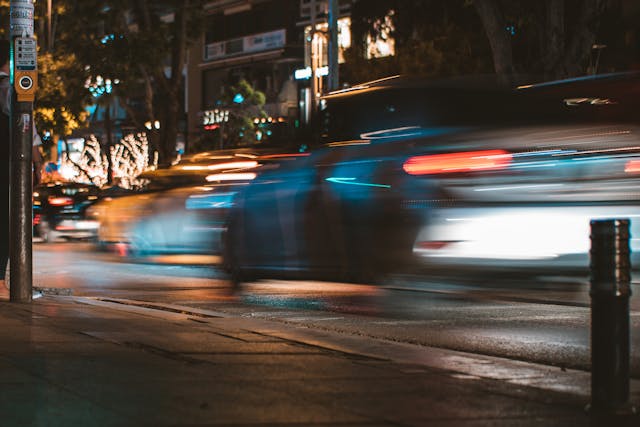Connect with us
Published
9 months agoon

Spring training games, desert getaways, national parks, and warm winters—Arizona has always pulled in travelers from Utah. But no one plans for a roadside emergency when they pack the cooler and hit I-15. One wrong turn or distracted driver later, your sunny road trip turns into flashing lights and a police report.
If you’re from Lehi or anywhere in Utah and you’ve been in a car accident across the Arizona border, things get complicated fast. Arizona laws aren’t the same. Insurance companies know that. They also know most drivers don’t. Here’s how to stay ahead if your road trip ends in a wreck.
Arizona and Utah may share a border, but they don’t share liability laws. If you’re used to Utah’s system, don’t assume things will work the same just a few hours south.
Arizona uses pure comparative negligence, which means you can still recover damages even if you’re 99% at fault. Your payout simply gets reduced by your percentage of fault. So if you’re 30% at fault, your final award drops by 30%.
Utah, on the other hand, caps recovery at 50%. If you’re found more at fault than the other party, you recover nothing. In Arizona, you still have a shot at compensation, even if you partially caused the crash.
Injury victims in Arizona have 2 years from the date of the crash to file a lawsuit. Utah gives you up to 4 years. If you wait too long, your case disappears—even if your injuries are serious.
Arizona’s minimum liability coverage is 15/30/10, while Utah’s is 25/65/15. That smaller coverage could leave you with unpaid medical bills and vehicle repair costs—unless you’re protected by your own underinsured motorist policy.
After a crash, expect a phone call within days—sometimes hours—from the other driver’s insurance company. The person on the line may sound friendly, even helpful. They might ask how you’re feeling or offer a quick settlement to “help you move on.”
Make no mistake: they’re not on your side.
Insurance adjusters are trained to protect their company’s bottom line, not your recovery. And when you’re from out of state, they see an opportunity. Why? Most travelers don’t know how Arizona’s insurance laws work. You might assume things operate the same as back home, or that accepting a few thousand dollars now is better than a long legal process. That’s exactly what they’re counting on.
Here’s how these calls often play out for out-of-state drivers:
We’ve seen Arizona insurers push lowball offers, twist drivers’ words, and even deny liability altogether—hoping you’ll give up rather than deal with a legal case in another state. And once you sign a release, there’s no going back.
You’re on the side of the road in Arizona, shaken, disoriented, and far from home. Whether you’re headed to a spring training game, the Grand Canyon, or just passing through, an accident was never part of the plan. In those first chaotic minutes, every move matters—not just for your safety, but for your legal and financial future.
No matter how small the crash feels, call emergency services. The official police report will document who was involved, where it happened, and what likely caused it. In Arizona, this report becomes a key piece of evidence, especially when insurance companies start pointing fingers.
If there’s any chance you’re injured after a crash, speak up and get help. That includes you, even if you’re able to walk away. Adrenaline can mask pain, and serious issues like concussions, internal injuries, whiplash, or soft tissue damage often don’t show up right away.
If EMS is on the scene, get evaluated. If they don’t transport you, go to the ER or urgent care yourself as soon as possible. Early medical treatment isn’t just about protecting your health—it’s also critical to your personal injury claim.
Under Arizona law, injury victims can recover damages for:
But here’s the catch: if there’s a gap between the crash and your first treatment, insurance adjusters will use it against you. They’ll argue your injuries weren’t serious, didn’t come from the accident, or happened later. Even if you’re in real pain, they’ll try to shrink your claim or deny it completely.
The sooner a doctor evaluates you, the stronger your case becomes. In Arizona, your right to compensation depends in part on proving your injuries were caused by the crash. Waiting too long to seek treatment gives the other side a perfect excuse to deny or reduce your claim.
Before vehicles are towed or debris is cleared, gather all the evidence you can. You may not be able to return to that exact location again, so your phone becomes your best legal tool.
Arizona isn’t just another version of Utah with warmer weather. The legal system changes as soon as you cross the state line. While you’re free to return home, your case stays in Arizona—and so do the deadlines, court procedures, and insurance companies that control what happens next. To protect your rights after an Arizona crash, you need a local Phoenix car accident lawyer who can move quickly, handle insurers, and keep your care on track—even after you return to Utah. We’ve helped Utah clients who never expected a legal battle while traveling, but needed someone in-state to make sure their case didn’t get buried in red tape.
If you’re from Lehi or anywhere in Utah and an Arizona accident turns your trip upside down, don’t let confusion or distance leave you stuck. What you do in the first 24 hours could determine whether your medical bills get paid, whether your injuries get taken seriously, and whether you walk away with the full compensation you deserve—or none at all.
Get checked. Get it documented. And get someone who knows Arizona law in your corner—before the clock runs out.

